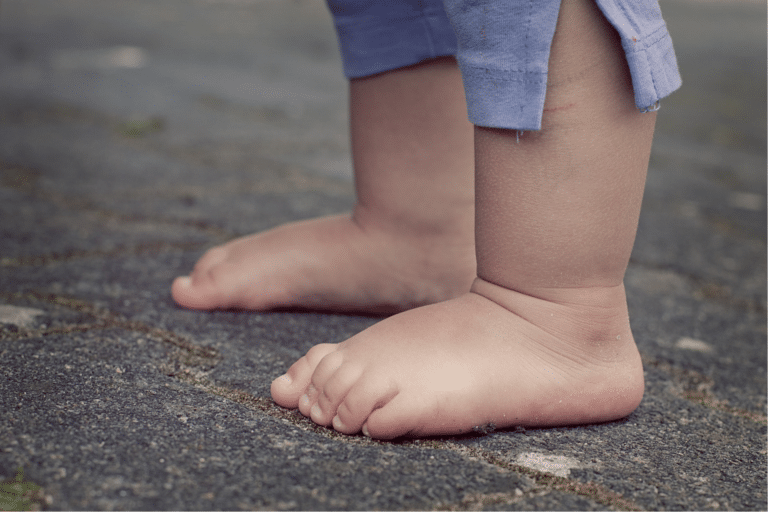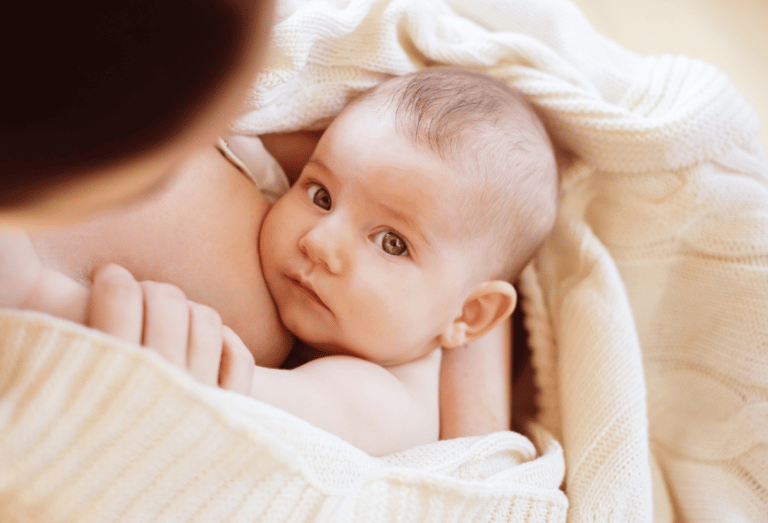The truth about growth and development is that, like all of us, babies are different. Though there are milestones that they are expected to reach and phases that they will go through, each baby will experience it slightly differently and not exactly at the same time. There are some suggestions below of the rough times you might notice changes in behaviour, sleep and feeding patterns but these are not set in stone and so you should not be worried if your baby doesn’t appear to be showing the signs of a leap at exactly the same time as these. You may not even notice some at all because the behaviours that are presented might be much more subtle.
You may find that these phases are more than noticeable when your baby is growing physically and experiencing a developmental leap at the same time.
Many parents report growth spurts or rapid developmental phases, known as leaps at around these ages:
When babies go through growth spurts and brain development phases it’s very normal for their sleep patterns and behaviour to change. This is often known as a sleep regression. The term sleep regression is not a very helpful one because the truth is, your baby is not regressing or going backwards, they’re actually progressing, moving forwards into a world where they learn new things and begin to experience the world around them in a new and different way.
Some changes to sleep are temporary and should settle down again after a few days or weeks where as some, usually around 4-6 months, can have a more lasting effect on your baby’s sleep routine. So if your baby was previously sleeping longer stretches and is now waking more frequently, it is perfectly normal for them to continue waking for some time to come. If you are finding this disruption to sleep very challenging it may be worth asking some questions about safe bed-sharing. Maximising your own sleep can also help to cope. Go to bed early a couple of times a week, have a lie in at the weekends, share a nap with your baby on the bed.
It’s important to remember that waking up at night and wanting to feed back to sleep, whilst difficult for parents, is normal and natural and won’t do your baby any harm. There is no need to teach your baby to sleep, in fact, continuing to respond to your baby’s needs and requests for breastfeeding will allow them to sleep better once they are developmentally ready to do so.
Your baby: what to expect at 6-12 months
Between 7 and 12 months your baby will seem to always be meeting new milestones and developmental stages!
Weight – as well as getting to grips with properly eating and digesting food and drink, you can expect that your baby will gain around 1lb (450g) each month, so that they are approximately triple their birth weight by one year old.
Mobility – as well as being a confident sitter, your baby will really be interested in getting moving, and may show some frustration when he is learning. In this age group, babies are mostly getting to grips with crawling and by one year will be really motoring around!
Some babies may also be trying to walk, or the precursor of pulling themselves up on furniture etc or cruising along while holding onto your hands. Music may also bring out some bottom wiggling as they get a bit older!
Brain growth – your baby will start to make lots more noises and try out their voices – usually starting with the easy ‘mama’ and ‘dada’ they may also learn short word/sounds such as No! (and use it a lot!). Their understanding of language extends to being able to follow simple commands and phrases such as “look at the train” or “get your teddy!”
They will become curious about everything, but also may go through a clingy phase and be afraid of strangers and unsure of new places. Unfortunately, this commonly coincides with the start of nursery/childminders which can make it challenging for all involved.
This age loves playing games such as peek-a-boo and animated nursery rhymes like itsy-bitsy-spider and pat-a-cake!
Sleep – up to one year old your baby is likely to still be taking 2 or 3 naps each day and may even be sleeping for a long stretch overnight (but don’t worry if they are still waking up: they do figure sleep out eventually!).
Daytime naps may well be very predictable which means that you can start to plan your day well around them.
/toddler-development, Toddler, developmental milestones
Your baby: what to expect at 12-18 months
All babies will develop at different rates, but your 12-18 month old may be meeting some of the following milestones:
- Food – they can mostly eat and drink quite well, feeding themselves and using cutlery, albeit messily at times.
- Mobility – by this age most babies are really getting to grips with walking and moving their body. They can squat and sit on small chairs/steps like a pro, and are able to conquer the stairs (with supervision).
- Brain growth and understanding – by the time they are 18 months many babies can say up to around 10-15 words and can string 2 simple words together. Their understanding of speech is very good, and they can understand longer sentences and questions.
At this stage, they begin to become self-aware and recognise themselves in the mirror/pictures. Separation anxiety can really hit hard at this age, but they will be able to show real affection and give great cuddles.
The concept of ‘mine’ is strong at this age, but sharing is still not something they can understand. This is also the age that temper tantrums are most common, mostly due to frustration.
- Sleep – at this age most will still be having at least one nap per day and may sleep for even longer stretches through the night. They generally need at least 12-14 hours sleep over 24 hours.
Your baby: what to expect at 18-24 months
All babies will develop at different rates, but your 18-24 month old may be meeting some of the following milestones:
Food: Your little one should be able to feed themselves confidently, with spoons and forks, and drink quite well from cups.
Mobility: You can look forward to your toddler playing more with a ball – learning to both kick and throw one, as well as being dextrous with toys like building blocks. They may show more interest in small vehicles like ride-on cars/trikes, and be capable of moving themselves.
Brain: A typical toddler will likely be interacting plenty with the world around them, including pretend play, taking turns, exploring and getting good at putting things away. Their mental skills are increasing rapidly! This includes their speech: they will likely have about 50 words of everyday objects and people, and be able to understand many more (around 300!). Separation anxiety may be levelling off by 2 years old, but they can still have trouble expressing themselves which can show itself as a tantrum.
Sleep: At this age, toddlers are often having 1 or 2 naps throughout the day and will have a longer sleep at night. They may still wake up during the night for feeds but should go back to sleep relatively easily.











